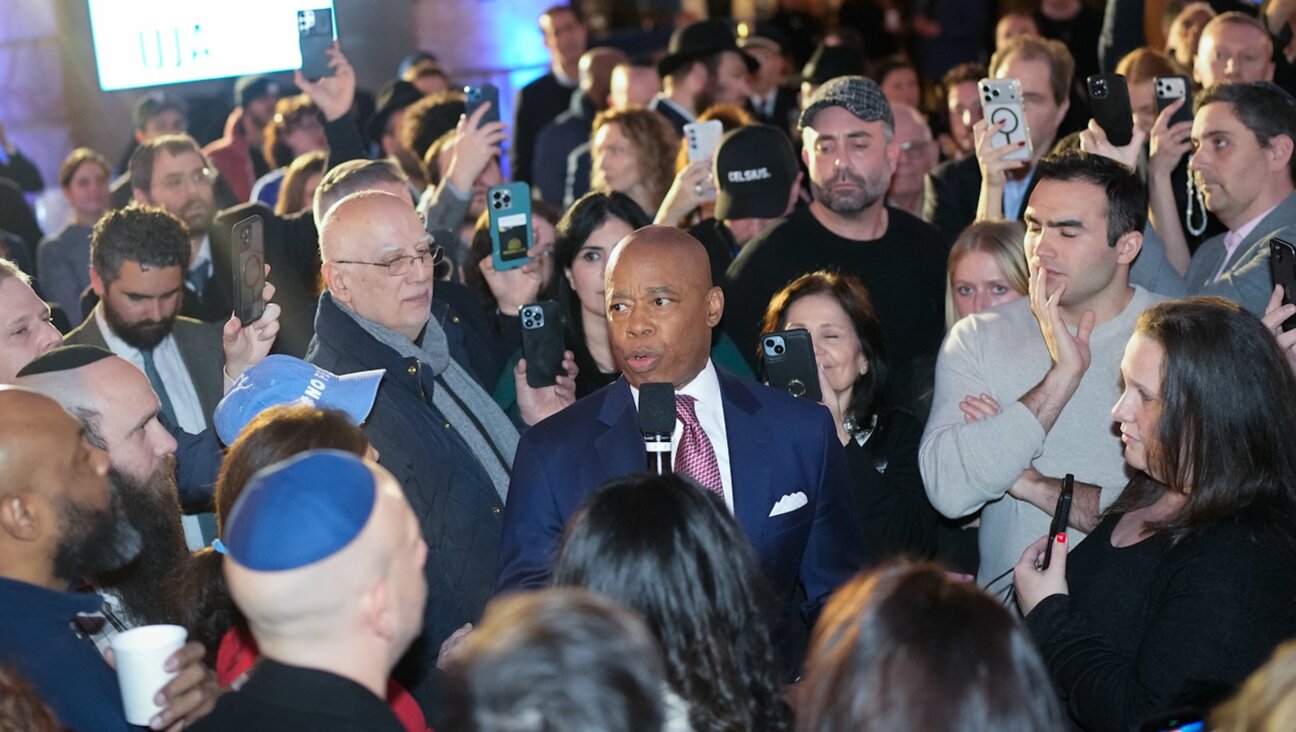As Kids Head to Camp, Parents Ask If They’re Having Enough Fun
At Camp Ramah in the Berkshires, Jewish campers wake up every morning at 7:30 and daven the morning prayers. After some swimming or maybe a Frisbee game, the older kids can, if they want, daven again in the afternoon. And at the end of a day that includes a 45-minute Judaic learning session, well, they can… daven again.
Sound like a fun-filled, carefree summer camp experience?
Some parents don’t think so. Where’s the waterskiing, they ask? And how are their kids supposed to cut loose when they’re spending so much time learning to be observant Jews?
This is the dilemma presented every year when it comes time for parents who want their kids to be involved in Jewish life to choose where their children will spend those memorable summer months. In New York City, the unofficial capital of Jewish life in America, some parents are split between those who say that there can never be enough Jewish education in their children’s lives and those who say that, yes, there most certainly can be — and summer camp is where they draw the line.
“I just want the kids to be kids,” said Barry Posner, a New York attorney who lives on Manhattan’s Upper West Side. “They’re very deeply steeped in Jewish values, heritage and learning, so for one or two months a year, let them have a vacation.”
Posner’s 10-year-old son, a student at a Manhattan pluralistic Jewish day school, the Abraham Joshua Heschel School, is just starting his second summer at Ramah in the Berkshires. This year the camp, one of Conservative Jewry’s network of seven North American sleep-away camps, will host 530 kids, ranging from from Orthodox and Conservative day school students to kids who get their Jewish learning a few hours a week at Hebrew school.
Posner, who went to what he called a “sports factory” camp in Maine, is also among a group of parents — both married and divorced — who are at odds over whether to go the Jewish route come July. Posner expressed concern that at a Jewish camp, his son may get short shrift when it comes to athletics. But he said that his former wife, whom he described as more observant, prioritized Jewish learning over a rigorous sports program.
Pearl Beck, a professional social researcher who has enrolled all three of her sons in Jewish day schools — Ariel, 19, graduated from the Ramaz School, an Orthodox high school in Manhattan, while Jonah, 18, graduated from Heschel high school — as well as in Jewish camps, feels that the more Jewish experience they get, the better.
“One of the reasons I send my children to a Jewish summer camp is to firm up their Jewish identity, because at camp they are exposed to Jewish life on a 24/7 basis,” Beck said.
Beck, a resident of Manhattan’s Upper West Side, has sent her sons to Camp Ramah in the Berkshires, as well as to Camp Yavneh, an independent Jewish camp in southern New Hampshire.
Her youngest son, Gabriel, 13, is spending his fourth summer at Ramah in the Berkshires, where, having reached bar mitzvah age, he will now be able to choose to attend a nonegalitarian prayer group, or minyan. In that minyan, boys and girls worship together, but girls do not lead services.
Rabbi Mitchell Cohen, director of the National Ramah Commission, explained that Ramah in the Berkshires is one of a handful of camps that offer nonegalitarian prayer groups. The spectrum of religious options available, he said, depends on the community that the camp serves. In Chicago, New York and Toronto, where there are Conservative Jews who pray in single-sex groups, the nearby camps — Ramah in the Berkshires, situated in Wingdale, N.Y., largely serves the New York metropolitan area — will accommodate the population.
Cohen, founding principal of Westchester County’s Solomon Schechter high school, is adamant about the importance of the Jewish summer camp experience, especially for those kids who already attend day school.
“Families who spend a fortune on day school education and then send their kids to nonreligious programs in the summer in some ways are wasting their investment,” Cohen said. “The kids are getting all the academic knowledge critical for a Jewish education, and then not applying it with friends in a warm, fun atmosphere.”
On average, some 50% of Ramah’s campers attend day schools. At Ramah in the Berkshires, that number — at 60% — is even higher.
In recent years, as the Jewish day school rolls have seen a sharp rise, the function of many Jewish camps has shifted. Founded in the 1940s and ’50s as a way to provide a Jewish immersion experience for American children, who for the most part attended public schools, the camps now serve a population that is far more steeped in Jewish text study the other nine months out of the year.
The first Ramah camp was founded in Wisconsin in 1947. Its function, Cohen said, was to educate a new crop of Jewish American leaders — rabbis, cantors and Jewish professionals. That mission has since expanded to serve thousands — this year, they number 6,500 — of largely Conservative Jewish youths who will pursue careers across a broad spectrum of fields, in both the secular and Jewish worlds.
Despite the rise of day schools, Cohen said, they can never fill quite the same function as a summer camp.
“Day schools do a phenomenal job of education, but it’s school, it’s homework,” he said. “It’s not a fair fight with summer camp, which for many kids is the best experience of their lives.”
















